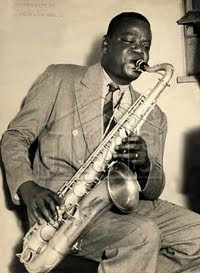Radamés & Rafael Collaboration
.jpg) Radamés Gnattali had several collaborations with renowned MBP artists during his long career as a composer, director and pianist - in the context of choro his collaboration with Garoto and Jacob do Bandolim is well known. In the early 1950s Gnattali and Garoto collaborated and prepared a work for orchestra and violão by Gnattali with Garoto as the soloist, and in the mid-60s Jacob do Bandolim was deeply involved as a soloist in the first performance and recording of Gnattali's famous 'Retratos' suite. A third example of a fruitful collaboration is the one between Gnattali and Rafael Rabello, the acclaimed maestro of the violão in the 1980s.
Radamés Gnattali had several collaborations with renowned MBP artists during his long career as a composer, director and pianist - in the context of choro his collaboration with Garoto and Jacob do Bandolim is well known. In the early 1950s Gnattali and Garoto collaborated and prepared a work for orchestra and violão by Gnattali with Garoto as the soloist, and in the mid-60s Jacob do Bandolim was deeply involved as a soloist in the first performance and recording of Gnattali's famous 'Retratos' suite. A third example of a fruitful collaboration is the one between Gnattali and Rafael Rabello, the acclaimed maestro of the violão in the 1980s.  The cd has five compositions by Garoto: 'Desvairada' • 'Gente Humilde' • 'Enigmático' • 'Nosso Choro'• 'Duas Contas' and a reading of Gnattali's 'Concertinho Para Violão'. The cd features Gnattali on piano and Rabello on violão 7 cordas - perhaps a somewhat unusual example of duo interplay, but nonetheless the music is worth listening, as both musicians excell great virtuosity throughout the performance.
The cd has five compositions by Garoto: 'Desvairada' • 'Gente Humilde' • 'Enigmático' • 'Nosso Choro'• 'Duas Contas' and a reading of Gnattali's 'Concertinho Para Violão'. The cd features Gnattali on piano and Rabello on violão 7 cordas - perhaps a somewhat unusual example of duo interplay, but nonetheless the music is worth listening, as both musicians excell great virtuosity throughout the performance.I found a video recording of a TV performance featuring Gnattali and Rabello, audio is a bit distorted, anyway, hope you to enjoy this rendtion of Garoto's 'Desvairada'
Jo







